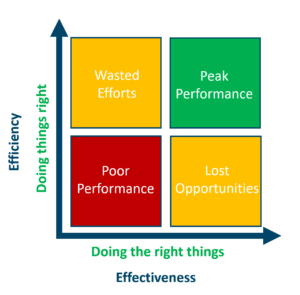If you’re in HR or TA and read this blog on a regular basis you know I’m all for making our recruiting process as efficient as possible! Primarily, because so many of us are woefully inefficient in using our technology and the belief that a more involved process must be a better process.
I’m a little nervous about the future and recruiting efficiency.
I think in our rush to become ever more efficient we might miss out on some great talent. At this point in the recruiting tech stack, I can actually automate every single piece. Anything you have a person do in recruiting I can automate. I can even ensure that candidates “don’t” get dispositioned if that’s how you like to play it! I mean about 50% of you don’t do that now, so it seems like that is probably the way you like it.
If recruiting was only about taking a requirement, matching that requirement to available talent, screening that talent, interviewing that talent, assessing that talent, and onboarding that talent, well then, technology can do that better and more efficiently than humans at this point. But, I think recruiting has always been about getting the best talent for your organization.
Available vs. best is where the technology starts to fall down if talent truly makes a difference in your organization. Honestly, for many, “best available” will work just fine, and it has for decades. The vast majority of organizations are hiring the best available at this point.
Technology is exceptional at hiring the best available. Technology hasn’t figured out how to hire the best talent that isn’t openly available at this point. If you don’t have that talent in your database, and that talent isn’t active on LinkedIn, or other job boards, technology has a really hard time getting your message in front of them.
The future of recruiting isn’t about efficiency. That is already here. The future of recruiting is about your organization’s ability to actually go out and discover who is the best talent for your organization. That person might not actually be in the “jobs internet”, or they were but that was five years ago so you’ll never see them as someone you want because the five years ago person isn’t your person you need today.
Efficient recruiting is great until it isn’t. If you suck at recruiting, then becoming more efficient at best practice recruiting (which recruiting technology can definitely make happen) will elevate your function for sure. But, efficient recruiting isn’t world-class recruiting. It’s just efficient.
The best talent acquisition in the future will be able to go out and discover the talent that hasn’t been discovered by everyone else. We like to believe that everyone who is anyone is on LinkedIn, or Indeed, or you name the site. But they are not, or they haven’t been active for a long time, so this is a hidden talent.
Too many TA shops are currently working too hard at becoming efficient and not hard enough at becoming experts of the talent for their industry and their marketplaces. You know I love technology. So, be great at technology, but don’t forget to be great at recruiting.

Tim – Well stated. I’ve long reminded my teams, managers, and customers that at best, the technology covers the process work, the admin work, the paper work, etc. It doesn’t address the engagement and real recruiting work!
I agree wholeheartedly and believe that the future is now. TA needs to be both “efficient and effective.” TA Pro’s need to become excellent at discovering the best talent – internal and external, understand how to engage them effectively, and excel at coaching and advising business leaders so that the function will have the strategic impact on the business.
Glad you are putting the topic front and center. We need to help our TA sisters and brothers to transform themselves into Talent Advisors and business leaders – not just administrators of an important business process.